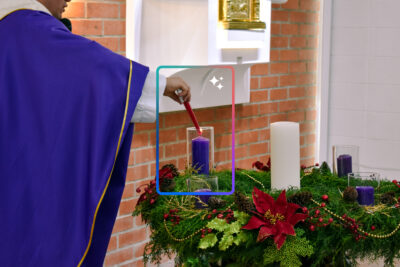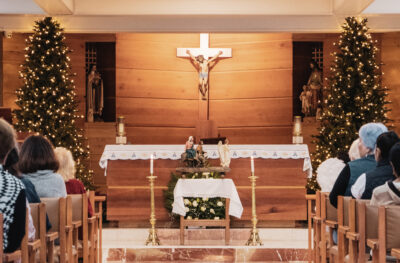
Joel, the Vice President for Programming and Administration at the National Eucharistic Congress, captivated attendees with his insights on building and sustaining a unified parish culture. Hosted by Gerardo from Pushpay, Joel’s talk was a masterclass in understanding, evaluating, and intentionally shaping parish culture to build a more cohesive and mission-driven community.
Recognizing Parish Culture
Joel began by making a point that resonated with many: every parish already has a culture, whether or not it’s acknowledged. He likened this to bacteria growing on our hands – it’s there, even if we don’t actively create it. This analogy underscores the necessity for parish leaders to recognize and understand the existing culture within their community. Often, multiple sub-cultures coexist within a single parish, leading to tension and conflict when not aligned. Joel stressed that acknowledging the presence of these varied cultures is the first step toward harmonizing them.
Three Key Strategies for Alignment
Joel offered three actionable strategies to bring parish cultures into alignment:
- Know the “Why”: It’s crucial for everyone in the parish to understand the purpose behind their actions. Joel shared that without a clear and communicated mission, parishioners and staff form their own ideas about what’s most important, leading to conflicts over resources and priorities. A unified mission helps prevent these conflicts and ensures that everyone is working towards the same goals.
- Define the “What”: Clarifying what the parish does and, importantly, what it chooses not to do is essential. Joel highlighted the importance of being able to say no to certain activities to focus on what truly aligns with the parish’s mission. This focused approach allows for better resource allocation and more effective ministry.
- Articulate the “How”: Understanding and communicating the values that guide parish activities is key. Values shape behaviors and decision-making processes within the parish. Joel noted that values need to be clearly defined and consistently demonstrated by parish leaders. For instance, if hospitality is a core value, what does that look like in practice for the parish?
Leadership and Culture
Joel reinforced that leadership plays a pivotal role in shaping and maintaining parish culture. Leaders must embody the culture they wish to see in their parishioners. This means leading by example in both spiritual and practical matters. For instance, if parish leaders want a culture of evangelization, they themselves must be active in sharing their faith.
The Importance of Honesty and Patience
Joel also highlighted the importance of honesty in evaluating parish culture. Sometimes, this means recognizing and addressing uncomfortable truths about how the parish operates. Change takes time, and patience is crucial. Joel encouraged parishes to stay committed to the process, even when progress seems slow.
Final Thoughts and Community Engagement
The session wrapped up with a Q&A, where Joel provided further insights on fostering change from the bottom up and supporting parish leaders in their roles. He invited attendees to follow his work and the ongoing activities of the National Eucharistic Congress, encouraging them to remain engaged and prayerful as they work towards a more unified and mission-driven parish culture.
Joel’s parting message was clear: by focusing on the “why,” “what,” and “how” of parish activities, and by embodying the desired culture, parish leaders and members can create a more cohesive and effective community, better equipped to fulfill their mission and serve their congregation.







